Clique aqui para Português
Brazil will hold the first round of its 2022 presidential and gubernatorial elections this Sunday, October 2. In this special report, RioOnWatch compiles the policy proposals of all Rio de Janeiro’s gubernatorial candidates registered with the Superior Electoral Court (TSE). Two of them do not mention the state’s favelas at all in their governance plans: incumbent governor Claudio Castro (Liberal Party, PL), who is running for reelection, and former mayor of Niterói, Rodrigo Neves (Democratic Labor Part, PDT).
According to data from the 2010 Census, at the time 1,393,314 people lived in favelas within the municipality of Rio de Janeiro (22% of the total population) along with another 1,702,073 elsewhere in the state, made up of 22 municipalities. In all, according to the last official count, favela residents were 14.4% of the state’s population.
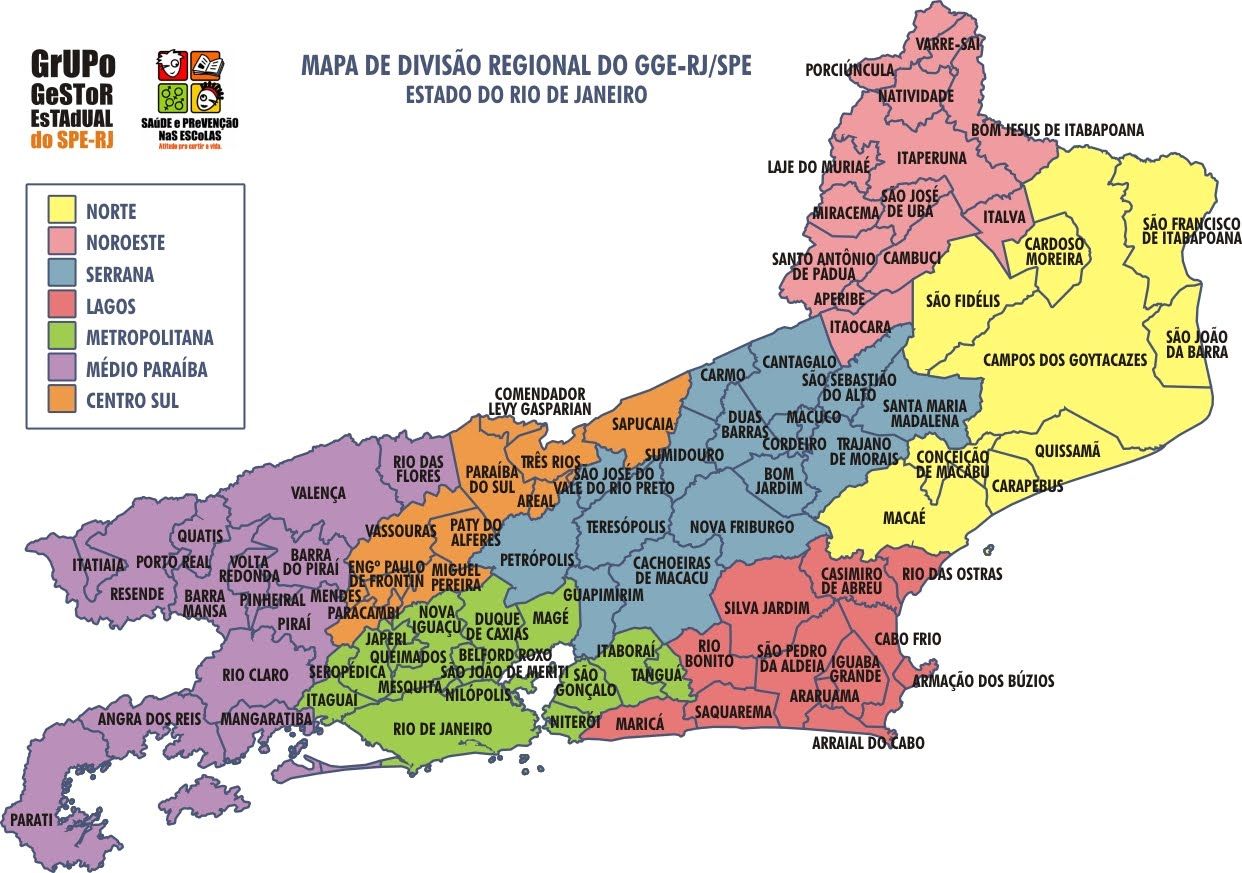 Despite this, few candidates have public policies directed specifically toward favelas in their governance plans. When these territories are mentioned, it is generally in the scope of public security or in plans to build new housing. Their histories are ignored, as are proposals for upgrading that respect that history.
Despite this, few candidates have public policies directed specifically toward favelas in their governance plans. When these territories are mentioned, it is generally in the scope of public security or in plans to build new housing. Their histories are ignored, as are proposals for upgrading that respect that history.
Altogether, the seven candidates running for Rio state governor are: Cláudio Castro (Liberal Party, PL), Marcelo Freixo (Brazilian Socialist Party, PSB), Rodrigo Neves (Democratic Labor Party, PDT), Paulo Ganime (New Party, NOVO), Juliete Pantoja (Popular Unity Party, UP), Cyro Garcia (United Socialist Workers’ Party, PSTU) and Eduardo Serra (Brazilian Communist Party, PCB).
Candidates are expected to register their governance proposals with the Electoral Court. These are then made available online to voters. But candidates are not obligated to fulfill those plans if elected. Nonetheless, governance proposals serve as a monitoring device for voters during the campaign and as an accountability instrument once candidates take office.
According to the TSE, the state has 12,827,297 registered active voters ready to cast their choice for governor in the first round of the elections on October 2 and, most likely, in the second round of voting scheduled for October 30, since no candidate is likely to win a majority in the first round. Below, read a brief summary of the political biography of each candidate in addition to a synthesis of all seven governance plans as they relate to favelas.
Cláudio Castro (PL)
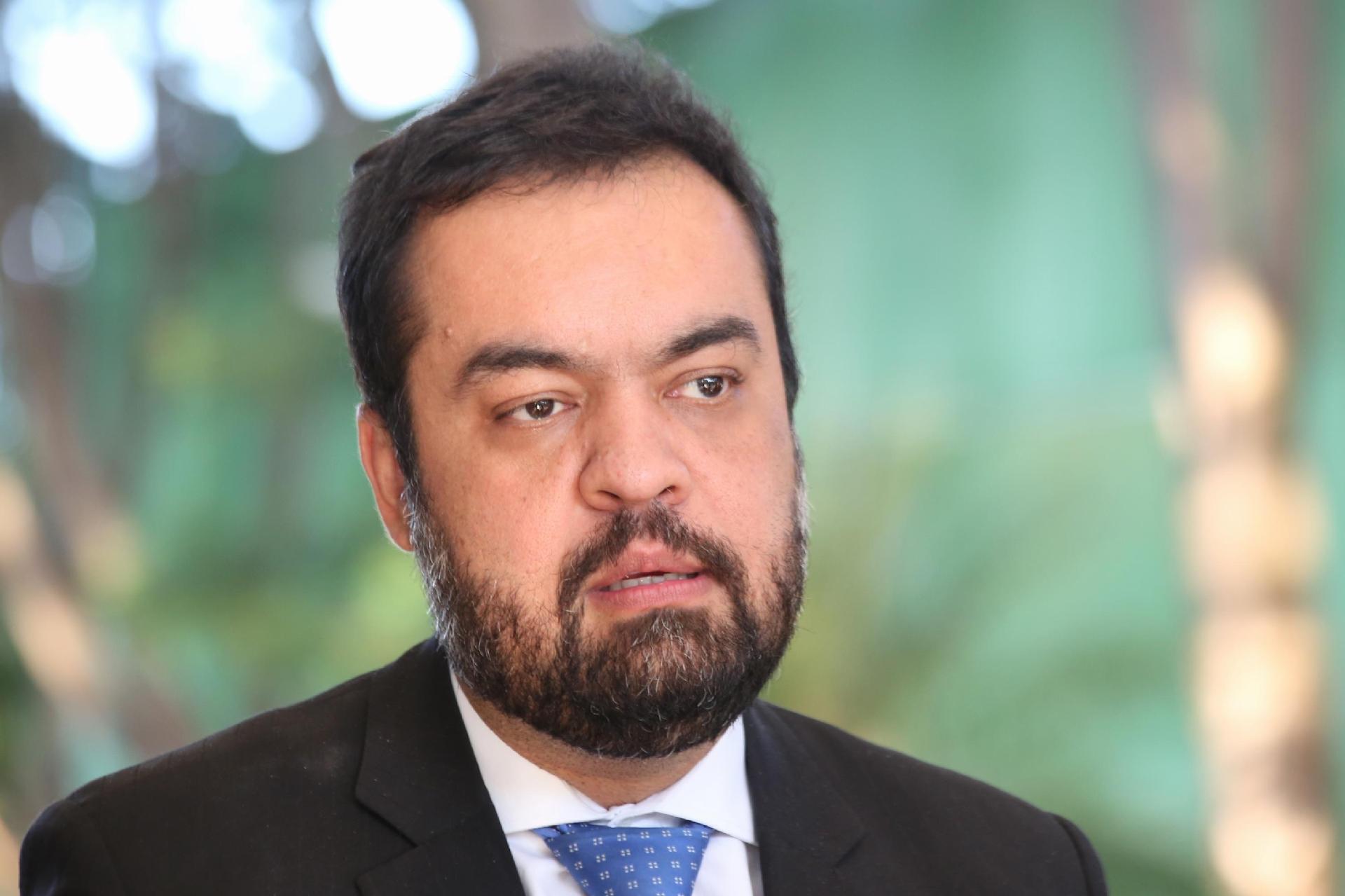 A lawyer, incumbent governor of Rio de Janeiro Cláudio Castro, 43, was chief of staff to State Deputy Márcio Pacheco (Social Christian Party, PSC). He became vice governor in 2019 after being elected on Wilson Witzel’s ticket and took over as acting governor in May 2021 after Witzel’s impeachment.
A lawyer, incumbent governor of Rio de Janeiro Cláudio Castro, 43, was chief of staff to State Deputy Márcio Pacheco (Social Christian Party, PSC). He became vice governor in 2019 after being elected on Wilson Witzel’s ticket and took over as acting governor in May 2021 after Witzel’s impeachment.
At 37 pages, Cláudio Castro’s governance plan describes what was carried out during the current term and defines his guidelines if reelected. The document contains a number of slogans to represent the next term’s priorities, denominated the “government’s Bible.” Some examples are: “MMA” (Table of Goals and Actions) and “SIGO” (Security, Investments, Management, Opportunities, in addition to a play on words with the verb seguir in the first person: “I proceed, I continue”). Besides the very specific promise to reopen the Alemão cable car, there is not a single direct mention of public policies aimed at favelas.
According to the program, if reelected, the governor will bring police and civil society closer together, expanding the Bairro Presente and Integrated City programs, which have both received ample criticism from specialists.
Castro’s running mate as vice governor was Washington Reis (Brazilian Democratic Movement, MDB), but he resigned after having his candidacy unanimously rejected by seven judges from the Rio de Janeiro Regional Electoral Court (TRE-RJ) for having a record under the Ficha Limpa Law (Clean Record Act). Reis was convicted by the Brazilian Supreme Court (STF) for environmental crimes and irregular subdivisions when he was mayor of Duque de Caxias, in Greater Rio’s Baixada Fluminense region. Castro’s new running mate is Thiago Pampolha, from the Brazil Union Party (União Brasil).
At a national level, Castro has declared his support to President Jair Bolosonaro (PL). The two are in the same political party, since Bolsonaro joined the Liberal Party in order to run for reelection.
According to the list of assets declared to the TSE, the candidate disclosed a total net worth of R$194,017.73 (US$35,827) and identified as white.
Marcelo Freixo (PSB)
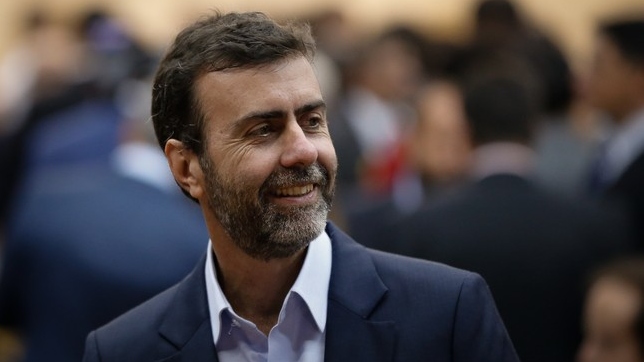 Marcelo Freixo, 55, is a federal deputy for Rio de Janeiro. Representing the Socialism and Liberty Party (PSOL), Freixo was elected as state deputy for three consecutive terms from 2007 to 2019, and presided over the Rio de Janeiro Legislative Assembly’s (Alerj) Human Rights Commission and the Parliamentary Investigative Commission (CPI) on militias. Freixo is an economist and historian. He was a mayoral candidate for Rio de Janeiro twice (2012 and 2016) coming in second both times.
Marcelo Freixo, 55, is a federal deputy for Rio de Janeiro. Representing the Socialism and Liberty Party (PSOL), Freixo was elected as state deputy for three consecutive terms from 2007 to 2019, and presided over the Rio de Janeiro Legislative Assembly’s (Alerj) Human Rights Commission and the Parliamentary Investigative Commission (CPI) on militias. Freixo is an economist and historian. He was a mayoral candidate for Rio de Janeiro twice (2012 and 2016) coming in second both times.
In 2022, he is running for governor. In his 100-page plan, Freixo promises a “favela upgrading policy” as a priority and refers to public security as an urgent matter. His plan is centered around eleven key themes and seven “structural transversal and intersectoral” programs.
Within Freixo’s governance plan proposals, the “Prosperity Program” and “Trained and Equipped Police Program” stand out. The first aims to bring leisure, education and professional training programs to favela residents, and was inspired by the Favela-Bairro Program created by his running mate, Cesar Maia (Brazilian Social Democracy Party, PSDB) when Maia was mayor of Rio de Janeiro from 1993 to 1997 and 2001 to 2009. If he is elected, the first Prosperity Neighborhood will be implemented in Greater Rio’s Complexo do Salgueiro, São Gonçalo.
Through the Prosperity Program, Marcelo Freixo promises the urgent strengthening of social interest land regularization, foreseeing the creation of legal, urban and social interventions in favelas with “legal mediation to find solutions that promote land regularization.” In this manner, housing policies would be implemented in central areas of cities, identifying vacant properties and land as a means to provide housing to those who need it, stimulating the “Social Function of Property,” and progressive property tax, as well as self-managed housing programs. Freixo is the gubernatorial candidate supported by former president and current presidential candidate Luiz Inácio Lula da Silva (Workers’ Party, PT) and intends to raise federal funds for public housing projects.
The “Trained and Equipped Police Program,” on the other hand, promises to create the “Integrated Cabinet for the Fight Against Gun Trafficking.” In addition, the human rights defender states this is possible by valuing the Military and Civil police through “clear protocols for confronting crime, and guaranteeing effectiveness of security force action, such as reduced lethal force.”
The candidate’s plan aims to “recover public trust in the police force and the government,” prioritizing technology and intelligence in the security budget to allow for “control over use of force.” Freixo promises this control through the creation of a committee for force mitigation within the Military Police, that will regularly meet to discuss cases of lethal use of force, as was done by a commission implemented by the state of São Paulo. Finally, he promises to “reestablish” a public security ombudsman.
Freixo declared a total net worth of R$78,916.00 (US$14,692) to the TSE and identified as white.
Rodrigo Neves (PDT)
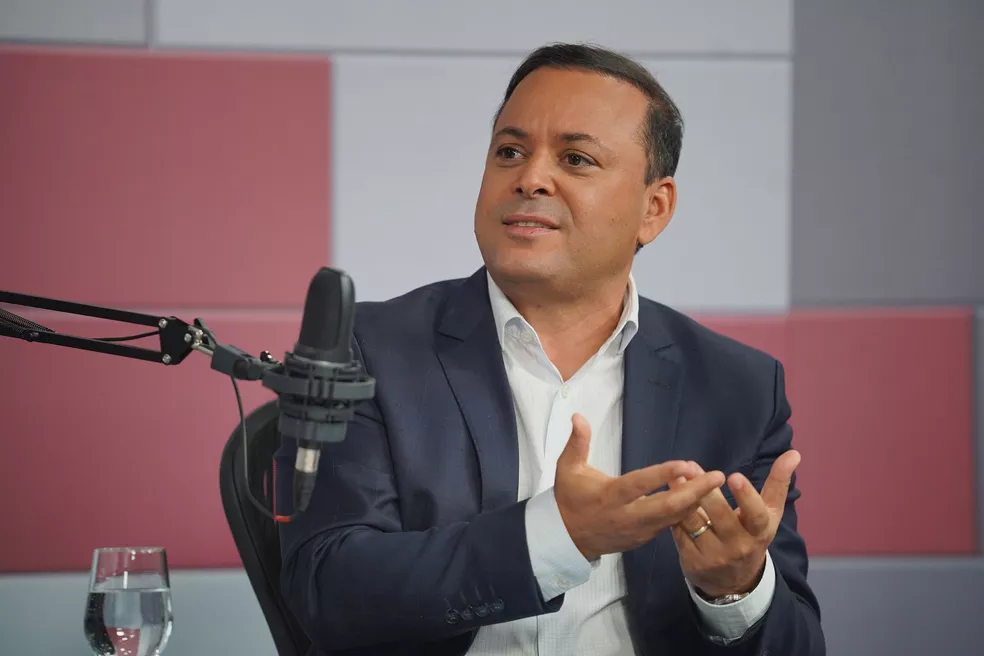 Rodrigo Neves, 45, is the former mayor of Niterói and a social scientist. He was a councilman, state deputy and State Secretary for Social Welfare. He was preventatively arrested and held during his term as mayor of Niterói due to an offshoot of Operation Car Wash. After four months, Neves left prison and resumed his position as mayor of Niterói. Recently, the case was closed by the courts at the request of the Public Prosecutor’s Office of Rio de Janeiro.
Rodrigo Neves, 45, is the former mayor of Niterói and a social scientist. He was a councilman, state deputy and State Secretary for Social Welfare. He was preventatively arrested and held during his term as mayor of Niterói due to an offshoot of Operation Car Wash. After four months, Neves left prison and resumed his position as mayor of Niterói. Recently, the case was closed by the courts at the request of the Public Prosecutor’s Office of Rio de Janeiro.
Neves is the PDT candidate for governor and has lawyer Felipe Santa Cruz as his candidate for vice-governor. In his five-page governance plan, there is no public policy aimed specifically at the favelas.
However, despite making no direct references, there are promises that affect favelas and their residents, such as, for example, improving basic health care, “reducing the alarming levels of poverty,” and looking after public security as a means of “reversing the process of chaos and normlessness by which entire neighborhoods are controlled by militias and the drug trade.”
To achieve this, Neves promises to combine prevention, intelligence and technological modernization, while supporting police institutions and the fight against police corruption to reduce lethality and crimes against persons and property.
Neves references “deprived areas” when presenting his plan under the theme of “resilient cities”: “We will intensify investments in resilient infrastructure with macro drainage works, slope containment constructions, the reinforcement of dams and dikes, and enable urban interventions that prioritize increasing the resilience of infrastructure in the face of the threats of disaster, flood prevention, as well as empowering people in communities to improve housing resilience in deprived areas.”
Rodrigo Neves declared his total net worth as R$873,800.00 (US$162,682), and identified as white to the TSE.
Paulo Ganime (NOVO)
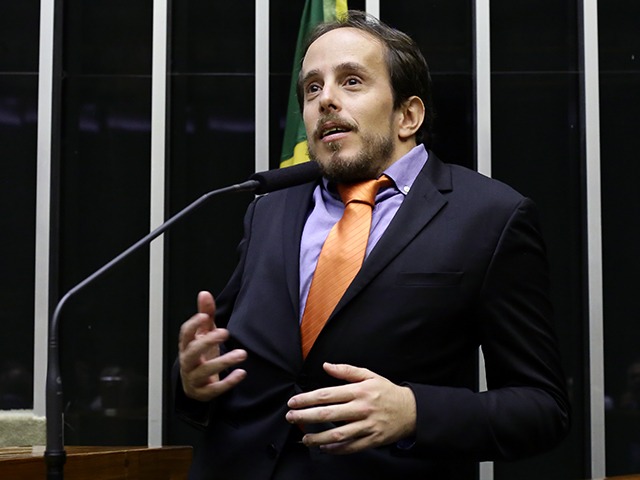 Paulo Ganime, 38, is a production engineer and federal deputy. Having worked in the private sector before going into politics, he was elected for the first time in 2018. He headed the NOVO caucus in the Chamber of Deputies in 2020 and currently has Helio Secco as his running mate.
Paulo Ganime, 38, is a production engineer and federal deputy. Having worked in the private sector before going into politics, he was elected for the first time in 2018. He headed the NOVO caucus in the Chamber of Deputies in 2020 and currently has Helio Secco as his running mate.
In his 178-page governance plan, Ganime only mentions Rio’s favelas directly with regard to the issue of public security and land regularization, promising to “reoccupy areas dominated by organized crime.” He guarantees he will fight crime inside the state’s favelas as a means of ensuring residents’ freedom of movement, which will in turn guarantee “residents’ free choice to purchase water and cable TV; so they can have the freedom to choose when and how to come and go and have full access to public utilities (water, electricity, etc.) like a resident of any another area of the state.”
For this reoccupation to take place, Ganime will promote “a meritocratic reward for police officers (civil and military).” He furthermore tries to reassure police officers promising “immediate support in case of confrontations [for officers working occupations].”
Another proposal is to regularize land inside favelas giving “communities the official titles of their residences and guaranteeing the right of ownership” in addition to various public policies focusing on the youth of the state.
He declared total assets of R$212,995.22 (US$39,655) and identified as white.
Juliete Pantoja (UP)
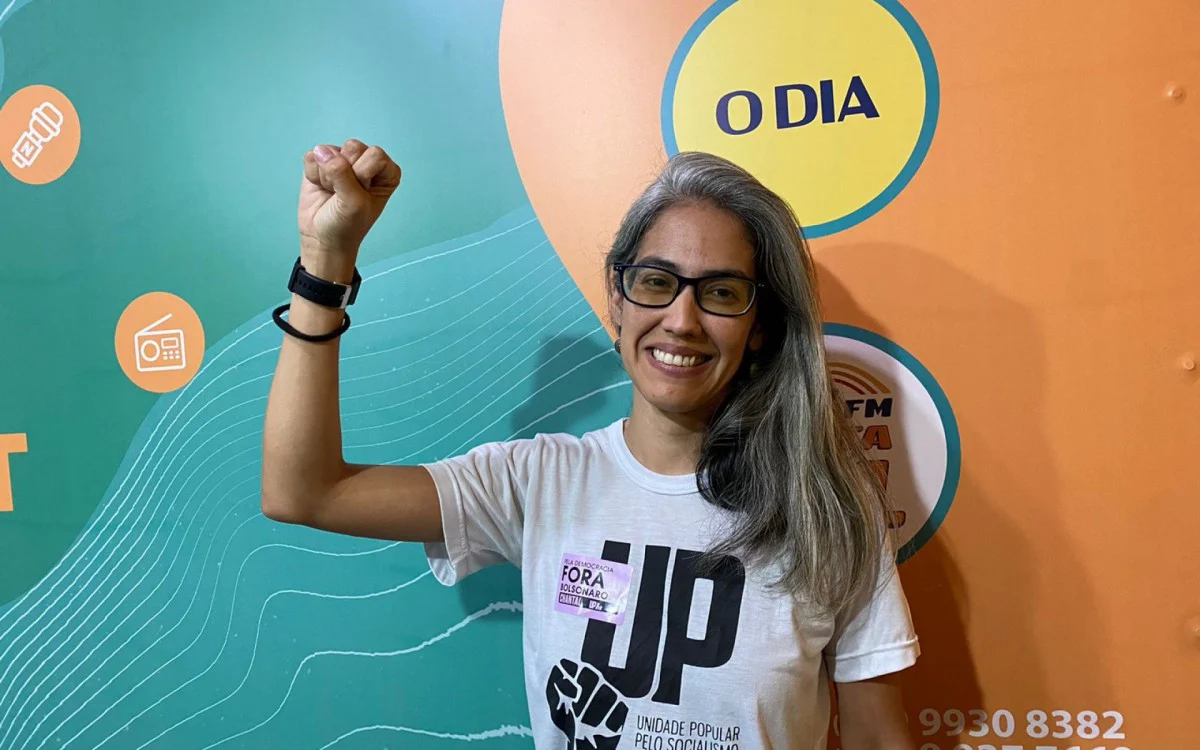 Juliete Pantoja, 32, is coordinator of the Movement for the Fight for Neighborhoods, Villages and Favelas. She organizes demonstrations and urban occupations and demands for housing rights. Pantoja is the state vice-president for the Popular Unity (UP) party and is running for governor, with student Juliana Alves as her running mate.
Juliete Pantoja, 32, is coordinator of the Movement for the Fight for Neighborhoods, Villages and Favelas. She organizes demonstrations and urban occupations and demands for housing rights. Pantoja is the state vice-president for the Popular Unity (UP) party and is running for governor, with student Juliana Alves as her running mate.
In her 13-page plan—80 Popular Unity Proposals to Transform Rio de Janeiro—the candidate emphasizes her opposition to Castro’s government: “marked by massacre policies in favelas, by social investment cuts and uncontrolled spending on political favors arising from state resources received as a result of the criminal sale of the Rio de Janeiro State Water and Sewerage Utility (CEDAE).”
As her main public policy for favelas, she proposes state investment in public housing through worker cooperatives and collective actions, in addition to land regularization for favelas. Pantoja advocates a security policy in “defense of young black lives,” and an end to police violence in favelas, with the deployment of police body cameras as an immediate policy.
Lastly, she promises to value favela culture, such as funk and rap, with the status of intangible state heritage. She intends to foster cultural production in favelas through the promotion of public grants and the guaranteed use and expansion of cultural infrastructure.
Pantoja declared a total net worth of R$203.99 (US$38) to the TSE and identified as white.
Cyro Garcia (PSTU)
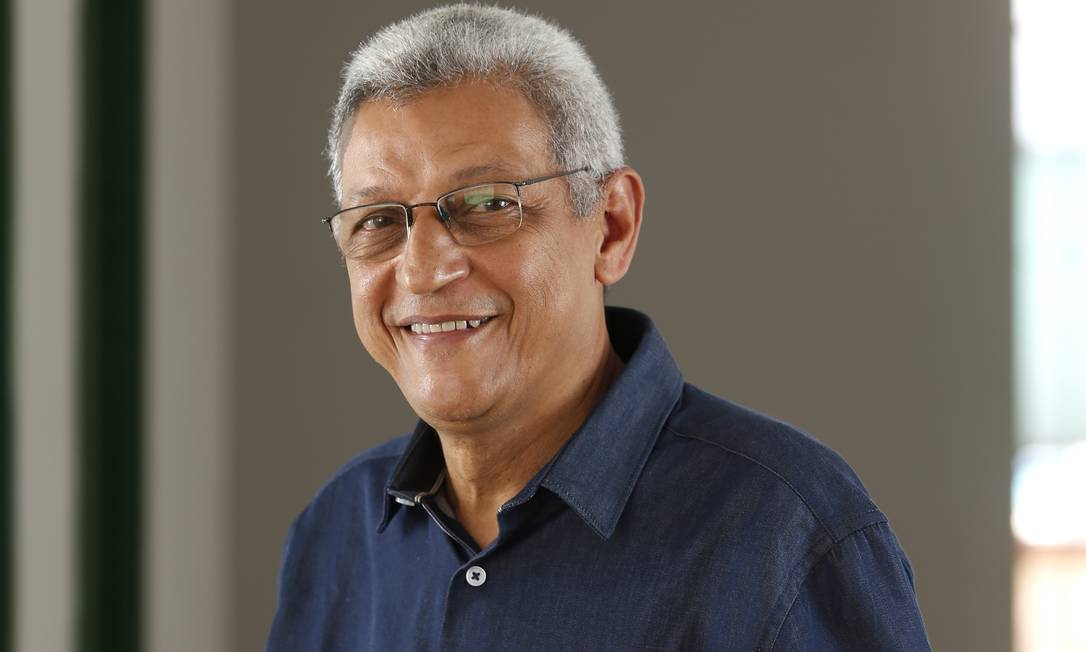 Cyro Garcia, 67, is a retired bank teller, historian, and university professor. Born and raised in peripheral areas, Garcia is the son of a truck driver and a seamstress and has a notable background in the struggles of the union movement.
Cyro Garcia, 67, is a retired bank teller, historian, and university professor. Born and raised in peripheral areas, Garcia is the son of a truck driver and a seamstress and has a notable background in the struggles of the union movement.
He was officially nominated as the PSTU candidate for the governor of Rio de Janeiro, with Samantha Guedes, a civil servant, as his running mate. Garcia has already run for mayor of Rio five times.
In his seven-page governance plan, he references basic sanitation, housing, employment, confronting violence against women and LGBTQIAP+ communities. When referring to favelas, he focuses on basic sanitation: “Despite the high rate of water supply, the degree of sanitation is very low, which mainly affects the residents of favelas and the municipalities of Greater Rio’s Baixada Fluminense region.”
In addition, Garcia defends the banning of police actions in Rio de Janeiro favelas and promises to demilitarize the Military Police.
Garcia declared a total net worth of R$164,760.00 (US$30,440), and identified as black to the TSE.
Eduardo Serra (PCB)
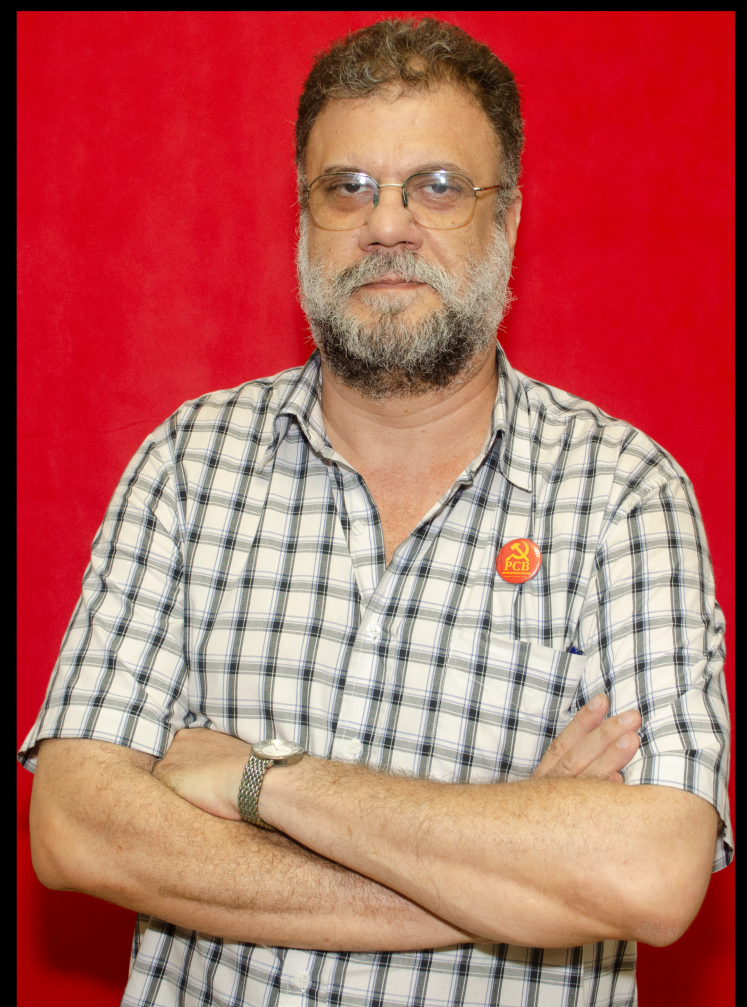 Eduardo Serra, 66, is a professor at the Rio de Janeiro Federal University’s Polytechnic School and Institute of International Relations and Defense. Serra is the state and national leader of the Brazilian Communist Party (PCB), and a candidate for governor. In 2008 he ran for mayor of Rio de Janeiro and for state governor in 2010. He also ran for Senate in 2014, but was not elected. He has professor Bianca Novaes as his running mate for vice-governor.
Eduardo Serra, 66, is a professor at the Rio de Janeiro Federal University’s Polytechnic School and Institute of International Relations and Defense. Serra is the state and national leader of the Brazilian Communist Party (PCB), and a candidate for governor. In 2008 he ran for mayor of Rio de Janeiro and for state governor in 2010. He also ran for Senate in 2014, but was not elected. He has professor Bianca Novaes as his running mate for vice-governor.
In his 40-page Communist Party Program for the State Government of Rio de Janeiro, Serra states that he is against the war on drugs introduced in the favelas as a public security policy, classifying the strategy as “nothing more than a smokescreen for a real war on the poor: a lot more people die from the violent fight against drugs than from drug use.” He argues that the security policy should prioritize the protection of life above all else.
He also promises to replace the two current police forces (Military and Civil) with two new police institutions: a civilian judicial police, of investigative nature, and a civil guard for ostensive patrolling, “uniformed and armed, but demilitarized, both of them subordinated to a single Secretariat of Public Security.”
Serra proposes a policy of urban reform for the favelas and the whole state of Rio de Janeiro, deeming housing and universal access to land as fundamental rights for citizens. Additionally, his urban reform policy encourages the reversal of the privatization of basic urban services: sanitation, water, electricity, gas and the paving of streets.
To the TSE, he declared a total net worth of R$415.000,00 (US$76,675) and identified as white.
Candidates Luiz Eugenio (Workers’ Cause Party, PCO) and Wilson Witzel (Party of the Brazilian Woman, PMB) had their candidacy requests rejected by the Regional Electoral Court of Rio de Janeiro (TRE-RJ). For this reason, their governance plans were not analyzed.

